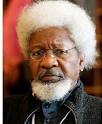By his intense intervention in the controversy relating to control of the Centre for Black Culture and International Understanding (CBCIU), Osogbo, the Osun State Governor, Rauf Aregbesola, demonstrated cultural progressivism, distinct from but connected with his political role.
Through an October 11 statement that reportedly bore his personal signature, Aregbesola communicated cultural intelligence that was both correct and corrective. It was an official response to Nobelist Wole Soyinka who had announced his resignation as Chairman of the CBCIU’s Board of Trustees. It also mirrored Aregbesola’s interior.
Aregbsola said: “In the interest of the public and the culture of our race to which Soyinka is passionately committed, he must continue in his capacity as the Chairman of the Board of Trustees of the Centre. Yes, Wole Soyinka has resigned but he himself has conceded the fact that the governor must accept it. We cannot accept the resignation even though we hold him in high esteem, because of the responsibilities attached to his chairmanship of CBCIU, which is beyond him and even beyond us.”
He stressed: “It has to do with the culture and tradition of our race which we believe that the CBCIU is meant to preserve and promote…We call on all people of goodwill to prevail on Prof Wole Soyinka to kindly reconsider his position and avail us his world acclaimed knowledge, intellect, international network and commitment to black culture and civilisation,”
There is no question about Soyinka’s exceptional creative capacity and cultural quality. In a specific and striking instance of his inspirational importance, when Boko Haram terrorists seized over 200 schoolgirls at the Girls Senior Secondary School, Chibok, Borno State, on April 15 last year, the evil coincided with a timely three-day academic conference inspired by Soyinka. The All-Comers Colloquium on Fundamental Imperatives of Cohabitation: Faith and Secularism, organised by the Soyinka-led CBCIU, in collaboration with The State Government of Osun, took place at the centre’s Auditorium, Abere, Osogbo in Osun State.
This background has relevance to the current dispute over control of CBCIU, particularly because of Soyinka’s observation in another context at the colloquium. Focused on faith-based extremism, perhaps with his eyes on extremities in general, he noted: “The mind is where it started and ultimately the mind is where this disease will be cured.”
To appreciate how a disease of the mind, or a diseased mind, might be a factor in the CBCIU drama, it is useful to reflect on an informative narrative by a former governor of Osun State, Olagunsoye Oyinlola, who has gone to court to seek validation of his claim to the position of CBCIU’s board chairman.
A revealing report of a press conference organised by Oyinlola, in Okuku, Osun State, said: “According to Mr. Oyinlola, the United Nations Educational, Scientific, and Cultural Organization in 2007 took a decision to establish a Category Two Institute (on culture) in Africa, which, it noted, would be the first of its kind on the continent. “A number of countries in Africa showed interest. Nigeria was one of them,” Mr. Oyinlola said. “To strengthen Nigeria’s bid for the institute, the presidency decided to acquire archival materials of renowned culture icon, Prof Ulli Beier and sent then minister of culture, Professor Babalola Borishade, to Sydney, Australia, to seal a deal with him on the matter. However, Beier gave two conditions which he said must be met before he would grant the request of Nigeria. These two conditions are, one, the institute must be sited in Osogbo where he lived and around where majority of the materials were gathered over the decades he was here.”
Oyinlola continued: “The second condition was on who would preside over the board of trustees of the centre. Beier told the Federal Government delegation that he did not know the minister who visited, the same with the president, Chief Olusegun Obasanjo, but that he knew Oba Moses Oyinlola, the father of the then governor of Osun State, Prince Olagunsoye Oyinlola. He then demanded that an agreement must be reached that Oyinlola would be the chairman of the board of the centre in his personal capacity ostensibly to ensure the protection of his vision on the archival materials. The Federal Government agreed to the two terms and signed an agreement with Ulli and Georgina Beier on May 10, 2007. It was after this that the Federal Government contacted and informed me of the agreement.”
The following sequence of events speaks volumes about the power of the mind and the exercise the mind in power: In 2008, as governor of Osun State, Oyinlola signed into law the CBCIU Act which stipulated that he would be the Chairman of the Board for life. Four years later, with Aregbesola in the saddle as governor, the Osun State House of Assembly amended the law to state that the Chairman of the Board shall be “the Governor or anyone appointed by him for that purpose.” Governor Aregbesola appointed Soyinka as Chairman of the Board in August 2012.
In the first place, what was on Oyinlola’s gubernatorial mind when he endorsed a law that would make him a permanent chairman of a public institution, considering the impermanence of public office? In the second place, what was on Oyinlola’s mind when he took the matter to court, considering the competence of the House of Assembly to effect legislative amendments?
When cultural thinking is informed by uncultured thoughts, or when cultured thoughts don’t inform cultural thinking, it is easy for the powerful to fall into error based on confusion. According to Aregbesola in his statement, “The issue here is not difficult at all.” He is probably correct. All it requires is the conjuncture of cultural thinking and cultured thinking.
NATION
END


Be the first to comment